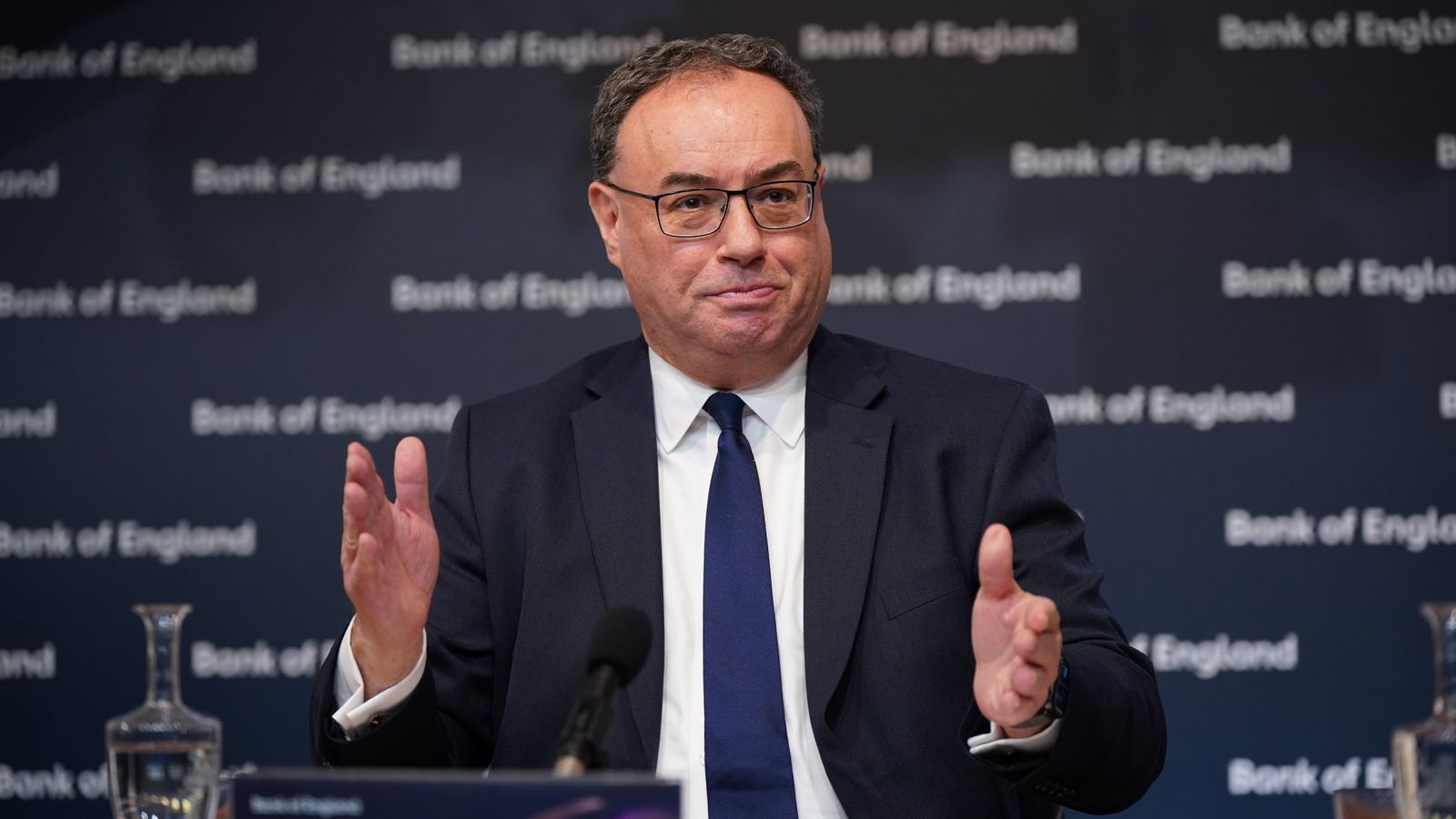The Bank of England is reiterating its forecast that inflation will fall over the rest of the year, with governor Andrew Bailey saying it will fall “markedly”.
The rate of price increases will come down due to lower energy costs, which should result in falling food bills for shoppers, Mr Bailey’s Mansion House speech is expected to say.
The bank had been criticised for its previous inaccurate inflation forecasts and for not taking action to bring down the rate of rising costs sooner.
Under rigorous questioning from MP members of Treasury Committee, Mr Bailey in May said there was “a lot to learn” about operating monetary policy in a world of big shocks, such as the war in Ukraine and the COVID-19 pandemic.
An external review into forecasting at the bank was announced last month.
But on Monday Mr Bailey is expected to say, “it is crucial that we see the job through”.
The Monetary Policy Committee of the bank has been persistently raising interest rates in an effort to bring down inflation which has remained stagnant at 8.7% for the last two months.
Much will be said by Mr Bailey on the possibilities of, and work to create, a central bank digital currency (CBDC), sometimes known as Britcoin.
Read more
A ‘Britcoin’ cryptocurrency could raise role of the state in our finances
‘Britcoin’: There isn’t a ‘convincing case’ for a digital currency in the UK
Unlike cryptocurrencies, such as Bitcoin, the coin would have intrinsic value connected to the pound.
Also unlike crytpo, a potential Britcoin would be issued by the Bank of England and not the private sector.
But at the Mansion House, Mr Bailey will call on commercial banks to invest in digital money technology to provide consumer choice.
“This is a call to action particularly to banks – don’t leave central banks as the only show in town,” he will say.
“There is no reason that I can think of which makes well designed, enhanced digital money the sole preserve of central banks”.
The creation of a digital form of currency had been the subject of a public consultation which, Mr Bailey will say, received a record number of responses – more than 50,000.
Digital monies, Mr Bailey will add, are “perfectly possible and achievable”.
While there is not yet a specific need and no certainty a CBDC will be created, Mr Bailey will say, that should not stop research and innovation.
“Inability to specify a very precise detailed use case today is not a good reason to believe there will never be one. There are stories of scepticism around the benefits to be expected from the iPhone, and going further back, railways.”
A Britcoin could facilitate smart contracts, in which money would be programmed to only be released when an action was carried out.
Mr Bailey will say concern was raised by some of the public consultation submissions over power authorities may have to reach into people’s privacy with a Britcoin. But this is “absolutely at odds” with what the bank would do, he will say.
“Incidentally, whoever painted “no to CBDC” on a motorway bridge, I can only apologise to the Cumbria Biodiversity Data Centre. Sorry.”
A decision on whether to implement a digital pound will be made around the middle of the decade.
